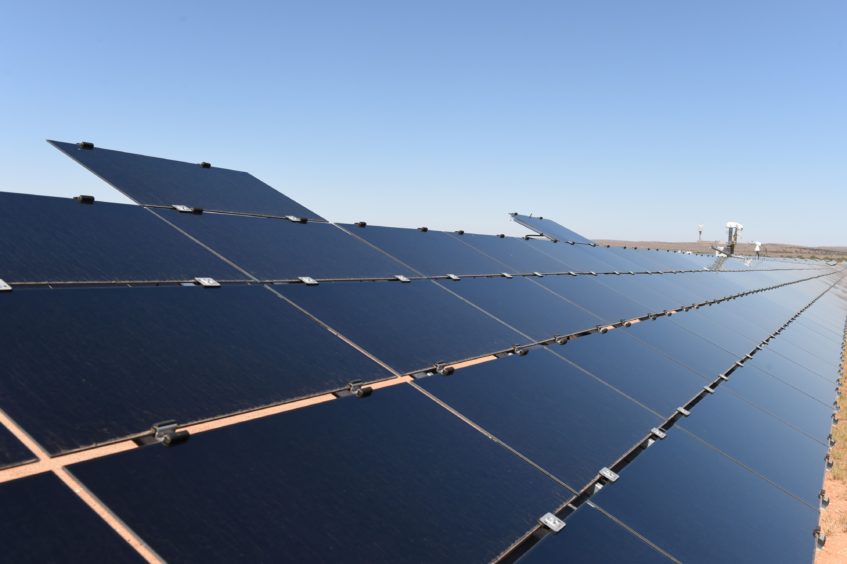
Former Revolut Ltd. employees are launching Britain’s first energy supplier in two years, a sign that a more stable market is helping new companies make inroads in the industry.
Fuse Energy Supply Ltd. was founded by Alan Chang and Charles Orr, alumni of the fintech giant, with backing from investors including former Formula One driver Nico Rosberg.
Fuse owns solar farms in the south of England and a wind farm in Scotland, and said it will offer the cheapest electricity tariff this summer.
It’s the first serious entrant to the household supply market since prices began climbing in 2021 on the back of supply disruptions in Europe, before then surging in the wake of Russia’s war in Ukraine.
About 30 suppliers went bust during the crisis after they were unable to hedge soaring wholesale costs. Now, prices are much steadier.
Fuse, which also counts ex-Ofgem chief Dermot Nolan as an adviser, hopes to make use of in-house software and the experience of Arnaud Luboinski, former head of French power trading at EDF Trading.
It said it will also provide the cheapest deals for businesses to take advantage of rooftop solar panels — known as power purchase agreements.
“We are here to disrupt the energy market with a 10X product at the best price,” said Chang, a physics graduate who was chief revenue officer at Revolut.
He said Fuse will follow Shell Plc’s model as a company with integrated generation and supply — but with a focus on renewables.
Chang has said he turned to the energy sector to tackle rising prices and climate change, after his seven-year stint with Revolut.
His new startup raised $78 million for a seed round last year. Balderton Capital UK LLP and Lakestar led the funding, with other backers including Accel, Creandum, Lowercarbon Capital, Ribbit and BoxGroup, as well as Rosberg.
Before being known as Fuse, the company operated in stealth mode as Tesseract and made a string of acquisitions the UK, including Paddington Power in February 2022, a licensed electricity supplier with Ofgem.
It added a Scottish wind farm a few months later and then solar farms in England.
The firm has 18 megawatts of capacity and is already supplying 200 homes in beta mode.
It targets 2 gigawatts of capacity by 2030, with expansions into Europe and North America already on the horizon.
For now, it’s offering a power tariff £60 ($79) below regulator Ofgem’s price cap, which won’t be advertised on price comparison websites.
Chang said the plan is to build a “full-stack renewable energy company” and to add financial services, which could include services for payment, financing, and access to government subsidies.
“Our ambition is not 1% market share,” he said. “We want to be a proper energy major.”
Recommended for you
